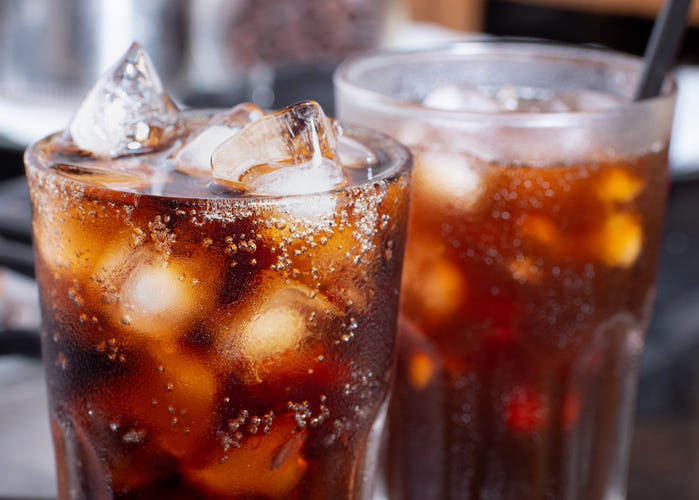
If you feel like you can't quit your ritual of downing an ice cold diet soda, you're not wrong: research shows they're not just delicious, they're also addictive.
Ashley Gearhardt, professor of psychology at the University of Michigan, who runs the Food and Addiction Science and Treatment lab, reports that "These drinks hijack the brain’s reward and motivation system and rewire the body’s metabolism, food and nutrition experts say, which can lead consumers to crave them more. Soda lovers are also trained to associate these products with certain events and moments due to decades of intense product marketing by beverage companies."
If you want to feel extra guilty about that soda habit, take in what else she says, comparing diet drinks to smoking: "“They want to inundate every single domain of your life,” she said. “Just like a chain smoker is dosing themselves with nicotine all day, you’re dosing yourself with a naturally delivered sweet taste day after day because whenever it’s not there, a part of you feels slightly depressed and slightly dissatisfied.”
Still, despite Gearhardt's research, the New York Times reported that the CDC does not consider aspertime and caffeine as addictive substances.
"The American Psychiatric Association ... categorizes all “addictions” — to alcohol, drugs, gambling, even paint thinner — under Substance Related and Addictive Disorders. Diet Coke is not mentioned; caffeine use disorder falls under the section “requiring further research,” the Times reported.
Despite its absense, they noted a 2007 study where laboratory rats were forced to choose between saccharin and cocaine, 94 percent of them chose the noncaloric sweetener — even if they had showed signs of dependence on the cocaine.
There's even a Facebook group called "Diet Soda Drinkers who WANT to Quit!" where thousands of people detail the difficulties they faced trying to give up diet drinks. One said it took "four years to get it right."
Gearhardt understands, telling the Times, "“People lose control over it. They consume it even though they know they should stop. They’re having compulsive behaviors. They go through withdrawal when it gets removed.”
